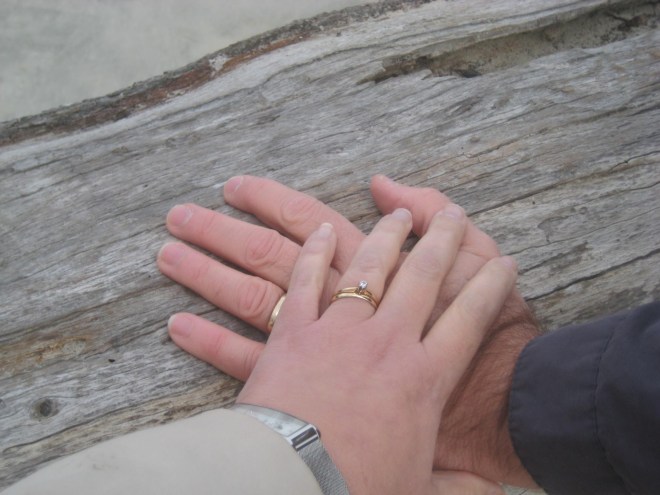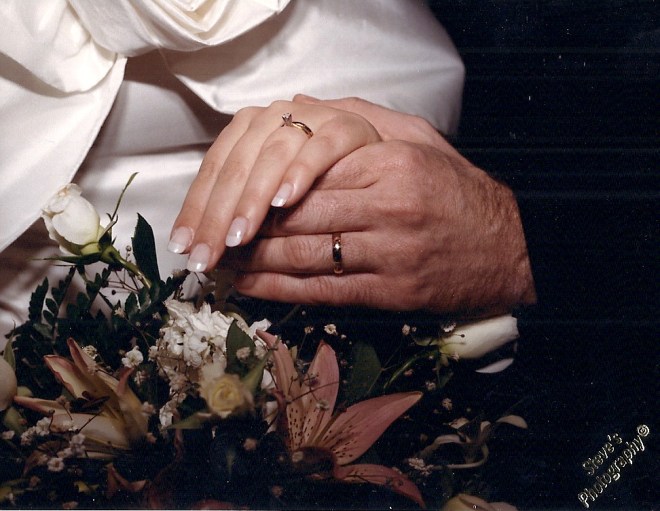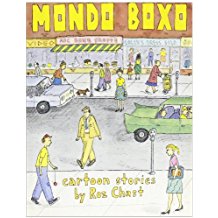You must judge a man by the work of his hands. ~ African Proverb

I loved Jim’s hands. He was a tall, lanky man and his hands were long and lean, his fingers elegant. Like the man himself, his hands were quiet and not overly expressive while he was talking. The gestures were spare and gentle. What he did with his hands was more important than what he said with them while talking, and what he said with his hands when he wasn’t talking was most important of all.
I knew that I loved his hands, that I had always found his hands attractive, but I was struck by how affected I was by the memory of those hands in the weeks immediately following his death. I was sorting through some items in Jim’s desk and came across an old work glove, stiff from overuse. I stopped before throwing it away. I slid my own hand into the glove that had once held his and felt immediately connected to him through the glove. There were many things I was able to give away or throw away in the first few weeks after his death, but I have not yet parted with any of his gloves. Winter gloves, work gloves, gloves he wore while doing the computer work that used to cause him so much pain, I cannot be parted from any of them.
Jim’s hands keep coming to my mind in many ways. Hands, after all, can represent many things. According to J.C. Cooper in An Illustrated Encyclopaedia of Traditional Symbols, Quintilian says, “The hands may almost be said to speak. Do we not use them to demand, promise, summon, dismiss, threaten, supplicate, express aversion or fear, question or deny? Do we not use them to indicate joy, sorrow, hesitation, confession, penitence, measure, quantity, number, and time? Have they not the power to excite and prohibit, to express approval, wonder, shame?”[1] Hands can be raised or placed on another person in blessing or benediction. They can be raised to swear an oath or ask a question. Hands can be laid on the heart in an expression of loyalty or devotion. They can symbolize generosity – “a helping hand”, they can give stability or support – “to offer (or to lend) a hand”, they can give greetings, they can heal, and they are the first expression of tender emotion when you hold someone’s hand. It is this last I heard from several different friends, at different times, when I told them the story of my reaction to his gloves. “It’s like holding his hand,” each one said.
In Jim’s life as an artist, his hands were important tools. They sculpted, drew, or painted with delicacy and precision. Even in his digital art, which he started in 2011, he drew on an iPad, not with a stylus, but with his finger. While the medium lacked a physical presence, the creation process was very physical for him. He would expand the image on his iPad with two fingers, draw in the detail or shading he wanted with the tip of his right index finger, and then pinch the image back down to its normal size. It was a painstaking process, but I find it interesting that his digital images were created in a very physical way, with a hands-on interaction with the tool and the medium.
As my husband, he loved me with his beautiful hands, both in physical intimacy and in the other parts of our lives together. His beautiful hands were always a turn-on for me, whether viewed in a sexual context or when I was observing him work on his art or around the house. Jim was a good amateur handyman. He fixed plumbing and did minor repairs and he had a special talent for patching plaster that he had developed over the years, first in his apartment, and then in each of our two houses. Again, those detailed, patient, precise hands fixed what was broken, formed and reformed whatever needed to be built up, and labored for our home and for us.
While I miss Jim’s quiet, reassuring presence continually, I also find that I often miss the hands that supported me and helped me as my partner in life. When I had lower back spasms two and a half weeks after his death, there was no one to drive me to my medical appointment, pick things up at the grocery, rub ointment into my skin, take care of the many little things around the house that need to be done, or just bring me a fresh cup of coffee. Jim cared for me in so many little ways. There were so many moments of kindness in my life with him, moments when he touched me with reverence and love, times when he picked up work that I was unable to do, days when he helped me or healed me with his hands, weekends that he did work on our home and for us. Even now, the house is covered with plaster patches that he never had a chance to sand and repaint. Between the patches are his drawings and paintings that I hung back up in case visitors came by. I am surrounded by the work of his hands.
The night Jim died, the funeral home director gave me Jim’s wedding band. Without thinking, I slipped it on my own hand. I had taken my own rings off sometime during the evening as was my habit. Thus when I woke up the next morning, only Jim’s wedding band was on my left hand. I’ve kept it there since then, held in place by my own rings. In this small way, my hand is still held in his, but it can never truly fill the place that his hand has left empty.

[1] Cooper, J.C., An Illustrated Encyclopaedia of Traditional Symbols. p. 78. London: Thames and Hudson, 1978. (https://archive.org/stream/B-001-014-059#page/n78 , accessed 26 May 2018).






